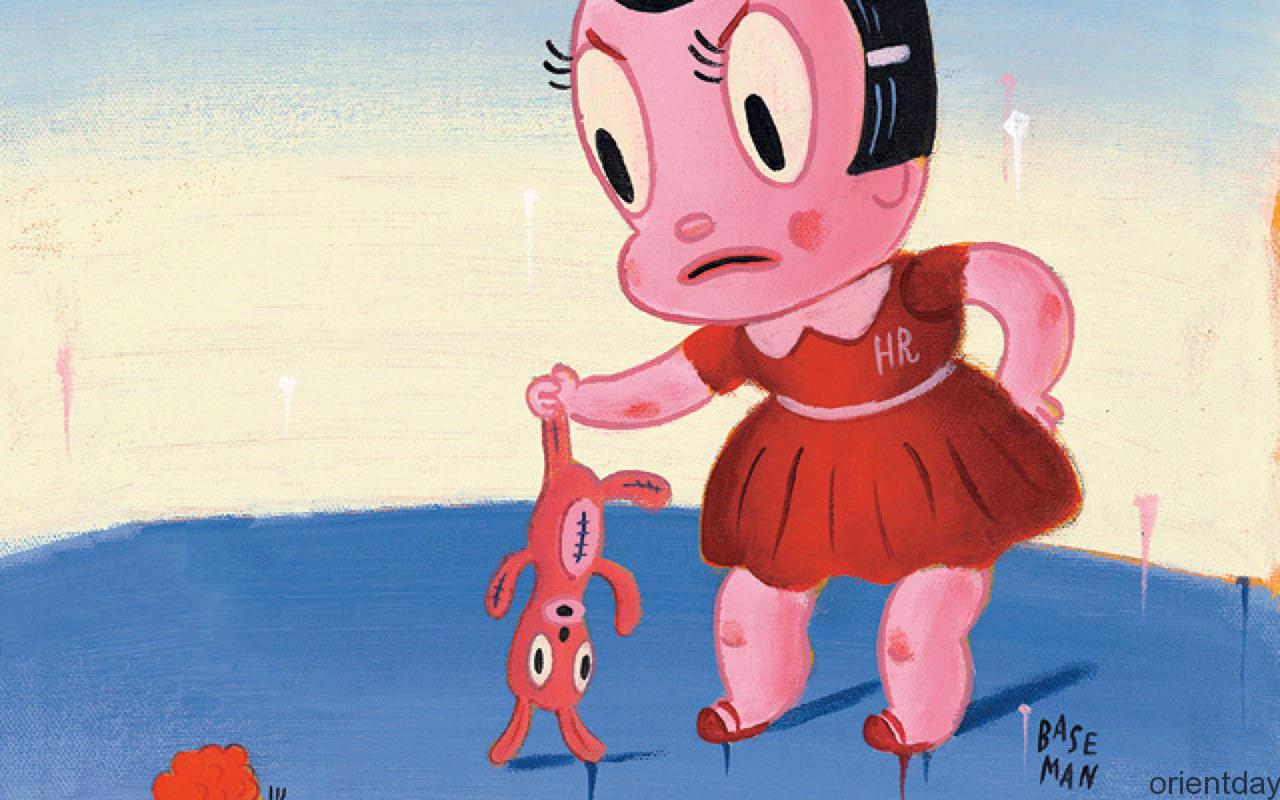So here's a true story: A talented young marketing exec accepts a job offer with Time Warner out of business school. She interviews for openings in several departments — then is told by HR that only one is interested in her. In fact, she learns later, they all had been. She had been railroaded into the job, under the supervision of a widely reviled manager, because no one inside the company would take it.
You make the call: Did HR do its job? On the one hand, it filled the empty slot. "It did what was organizationally expedient," says the woman now. "Getting someone who wouldn't kick and scream about this role probably made sense to them. But I just felt angry." She left Time Warner after just a year. (A Time Warner spokesperson declined to comment on the incident.)
Part of the problem is that Time Warner's metrics likely will never catch the real cost of its HR department's action. Human resources can readily provide the number of people it hired, the percentage of performance evaluations completed, and the extent to which employees are satisfied or not with their benefits. But only rarely does it link any of those metrics to business performance.
John W. Boudreau, a professor at the University of Southern California's Center for Effective Organizations, likens the failing to shortcomings of the finance function before DuPont figured out how to calculate return on investment in 1912. In HR, he says, "we don't have anywhere near that kind of logical sophistication in the way of people or talent. So the decisions that get made about that resource are far less sophisticated, reliable, and consistent."
Cardinal Health's Rucci is trying to fix that. Cardinal regularly asks its employees 12 questions designed to measure engagement. Among them: Do they understand the company's strategy? Do they see the connection between that and their jobs? Are they proud to tell people where they work? Rucci correlates the results to those of a survey of 2,000 customers, as well as monthly sales data and brand-awareness scores.
"So I don't know if our HR processes are having an impact" per se, Rucci says. "But I know absolutely that employee-engagement scores have an impact on our business," accounting for between 1% and 10% of earnings, depending on the business and the employee's role. "Cardinal may not anytime soon get invited by the Conference Board to explain our world-class best practices in any area of HR — and I couldn't care less. The real question is, Is the business effective and successful?"
3. HR isn't working for you. Want to know why you go through that asinine performance appraisal every year, really? Markle, who admits to having administered countless numbers of them over the years, is pleased to confirm your suspicions. Companies, he says "are doing it to protect themselves against their own employees," he says. "They put a piece of paper between you and employees, so if you ever have a confrontation, you can go to the file and say, 'Here, I've documented this problem.' "
There's a good reason for this defensive stance, of course. In the last two generations, government has created an immense thicket of labor regulations. Equal Employment Opportunity; Fair Labor Standards; Occupational Safety and Health; Family and Medical Leave; and the ever-popular ERISA. These are complex, serious issues requiring technical expertise, and HR has to apply reasonable caution.
But "it's easy to get sucked down into that," says Mark Royal, a senior consultant with Hay Group. "There's a tension created by HR's role as protector of corporate assets — making sure it doesn't run afoul of the rules. That puts you in the position of saying no a lot, of playing the bad cop. You have to step out of that, see the broad possibilities, and take a more open-minded approach. You need to understand where the exceptions to broad policies can be made."
Typically, HR people can't, or won't. Instead, they pursue standardization and uniformity in the face of a workforce that is heterogeneous and complex. A manager at a large capital leasing company complains that corporate HR is trying to eliminate most vice-president titles there — even though veeps are a dime a dozen in the finance industry. Why? Because in the company's commercial business, vice president is a rank reserved for the top officers. In its drive for bureaucratic "fairness," HR is actually threatening the reputation, and so the effectiveness, of the company's finance professionals.
The urge for one-size-fits-all, says one professor who studies the field, "is partly about compliance, but mostly because it's just easier." Bureaucrats everywhere abhor exceptions — not just because they open up the company to charges of bias but because they require more than rote solutions. They're time-consuming and expensive to manage. Make one exception, HR fears, and the floodgates will open.
There's a contradiction here, of course: Making exceptions should be exactly what human resources does, all the time — not because it's nice for employees, but because it drives the business. Employers keep their best people by acknowledging and rewarding their distinctive performance, not by treating them the same as everyone else. "If I'm running a business, I can tell you who's really helping to drive the business forward," says Dennis Ackley, an employee communication consultant. "HR should have the same view. We should send the message that we value our high-performing employees and we're focused on rewarding and retaining them."
Instead, human-resources departments benchmark salaries, function by function and job by job, against industry standards, keeping pay — even that of the stars — within a narrow band determined by competitors. They bounce performance appraisals back to managers who rate their employees too highly, unwilling to acknowledge accomplishments that would merit much more than the 4% companywide increase.
Human resources, in other words, forfeits long-term value for short-term cost efficiency. A simple test: Who does your company's vice president of human resources report to? If it's the CFO — and chances are good it is — then HR is headed in the wrong direction. "That's a model that cannot work," says one top HR exec who has been there. "A financial person is concerned with taking money out of the organization. HR should be concerned with putting investments in."
4. The corner office doesn't get HR (and vice versa). I'm at another rockin' party: a few dozen midlevel human-resources managers at a hotel restaurant in Mahwah, New Jersey. It is not glam in any way. (I've got to get a better travel agent.) But it is telling, in a hopeful way. Hunter Douglas, a $2.1 billion manufacturer of window coverings, has brought its HR staff here from across the United States to celebrate their accomplishments.
 或登录投递
或登录投递
版权声明:本文著作权归原作者所有,欢迎分享本文,谢谢支持丨www.jobsapk.com丨如未注明,均为原创 转载请注明:Why We Hate HR? | jobcolour





